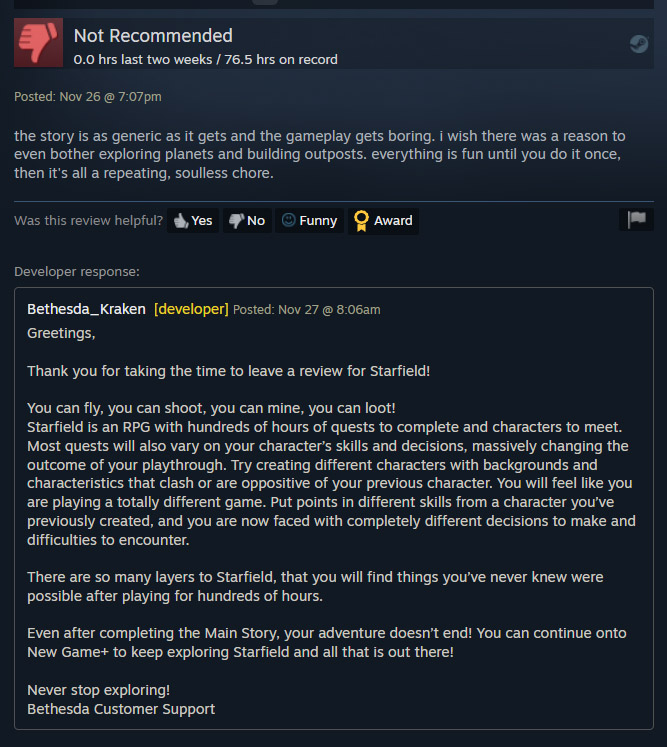
JuiceHead, a social media account, recently brought attention to a series of negative reviews for Bethesda’s much-anticipated space-themed RPG, Starfield. Notably, the reviews were met with replies from verified Bethesda developer accounts, offering explanations defending the game against the criticisms.
One review, which expressed dissatisfaction with the game’s generic story and perceived boring gameplay, garnered a response from a Bethesda developer using the handle “Bethesda_Kraken.” Despite the player having spent more than three full days playing the game, the response provided by the developer seemed to follow a somewhat standard template.

Replying to a gamer who complained of loading times, another verified Bethesda account told them to “consider the amount of data for the expansive gameplay that is procedurally generated to load flawlessly in under 3 seconds.” Okay, thanks for the info Bethesda, but clearly those three seconds in rapid succession in an array of quick travel menus was something that this particular player didn’t enjoy.
Developers taking issue with particular gamers’ reviews isn’t exactly new, especially as Steam’s game reviews have become such an immediate arena for direct feedback. But it’s very rare to see a publisher like Bethesda engage in this kind of petty back-and-forth.
It is, to put it mildly, a bad look. Arguing technical merits with someone who’s been paid to review your product is somewhat petty, especially if the opinions expressed don’t actually have anything to do with the specs. But going directly to the people who’ve paid you to play your game, and explaining why they should have enjoyed it more, is just going to annoy them.




